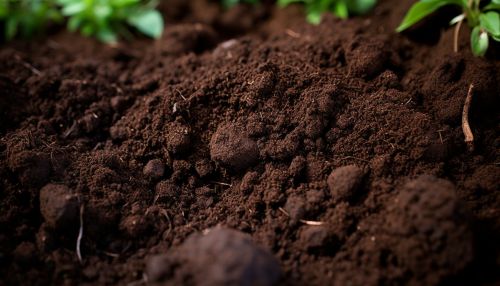Soil Microbiome and Plant Health
Introduction
The soil microbiome is a complex ecosystem of microorganisms that interact with each other and with plants, playing a crucial role in plant health. This ecosystem is composed of bacteria, fungi, viruses, and other microorganisms that contribute to the nutrient cycling, disease suppression, and growth promotion of plants. The soil microbiome is a dynamic entity, with its composition and function changing in response to environmental conditions, plant species, and management practices.


Soil Microbiome Composition
The soil microbiome is incredibly diverse, with estimates suggesting that a single gram of soil can contain up to one billion bacteria and thousands of different species. The most abundant groups of microorganisms in the soil are bacteria and fungi, but the soil microbiome also includes archaea, viruses, protozoa, and nematodes.
Bacteria
Bacteria are the most abundant microorganisms in the soil, with a wide range of metabolic capabilities. They play a crucial role in nutrient cycling, decomposing organic matter and transforming nutrients into forms that plants can use.
Fungi
Fungi are another important component of the soil microbiome. They contribute to the decomposition of organic matter and the cycling of nutrients, and some fungi form mutualistic relationships with plants, aiding in nutrient uptake.
Other Microorganisms
In addition to bacteria and fungi, the soil microbiome includes other microorganisms such as archaea, viruses, protozoa, and nematodes. These organisms also contribute to nutrient cycling and disease suppression, and their interactions with bacteria, fungi, and plants can have significant impacts on the overall function of the soil microbiome.
Role in Plant Health
The soil microbiome plays a critical role in plant health, influencing nutrient uptake, disease resistance, and growth promotion.
Nutrient Uptake
Microorganisms in the soil microbiome play a key role in nutrient cycling, transforming nutrients into forms that plants can use. For example, bacteria in the soil can convert nitrogen from the atmosphere into a form that plants can use, a process known as nitrogen fixation.
Disease Resistance
The soil microbiome can also help plants resist diseases. Some soil microorganisms produce compounds that inhibit the growth of plant pathogens, a phenomenon known as disease suppression. In addition, the presence of a diverse soil microbiome can prevent the dominance of any single pathogen, reducing the risk of disease outbreaks.
Growth Promotion
Some soil microorganisms can promote plant growth directly, either by producing plant growth-promoting substances or by forming mutualistic relationships with plants. For example, mycorrhizal fungi form symbiotic relationships with plants, aiding in nutrient uptake and enhancing plant growth.
Impact of Agricultural Practices
Agricultural practices can have significant impacts on the soil microbiome and, consequently, on plant health. Practices such as tillage, crop rotation, and the use of fertilizers and pesticides can alter the composition and function of the soil microbiome, with potential impacts on nutrient cycling, disease suppression, and growth promotion.
Tillage
Tillage can disrupt the soil structure and alter the soil microbiome. This can lead to a decrease in the abundance and diversity of soil microorganisms, which can impact nutrient cycling and disease suppression.
Crop Rotation
Crop rotation can influence the soil microbiome by altering the types of plant residues and root exudates in the soil, which can affect the composition and function of the soil microbiome.
Fertilizers and Pesticides
The use of fertilizers and pesticides can also impact the soil microbiome. While these inputs can increase crop yields, they can also alter the soil microbiome, potentially impacting its function and the health of future crops.
Future Directions
Understanding the soil microbiome and its role in plant health is a rapidly growing field of research, with potential applications in sustainable agriculture and environmental management. Future research will likely focus on understanding the complex interactions within the soil microbiome, developing strategies to manipulate the soil microbiome to enhance plant health, and exploring the potential impacts of climate change on the soil microbiome.
